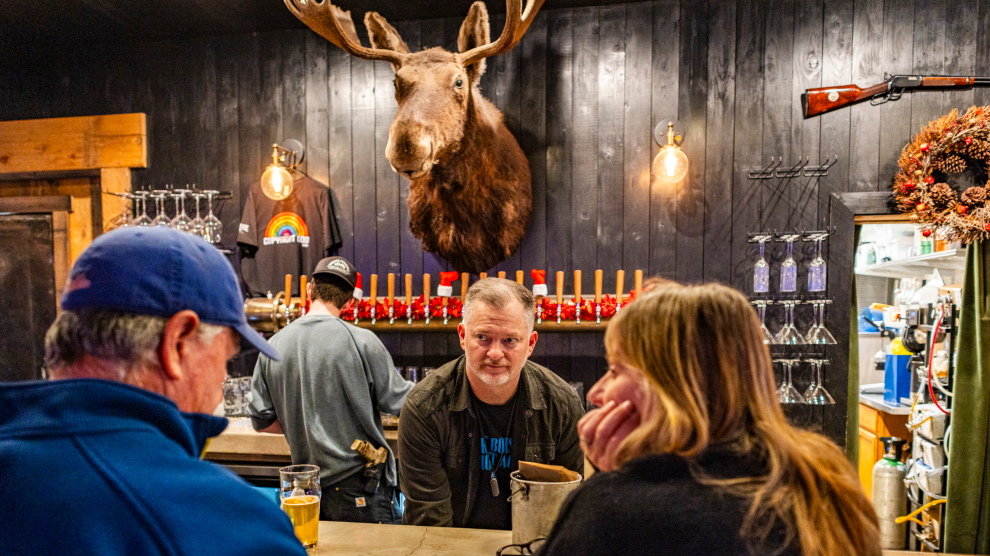It was lunch hour in the cafeteria of Afghanistan’s parliament, a barren space set with unadorned, and mostly empty, chairs and tables. Mawlawi Mohammed Islam Moham-medi cut his stewed mutton with a spoon, pulled nervously at his wispy black-dyed beard, dug in the pockets of his dirty shalwar kameez, checked his voice mail, and looked around the mirrored walls for something to distract him. “Now we know each other,” he said. “We are friends.”
A Tartar warlord from Samangan province, Mohammedi is one of 351 elected members of Afghanistan’s National Assembly. Before that he was a Taliban commander and eventually became the governor of the central highland province of Bamiyan. He had “secured” his region well, he told me when we met. “The people cooperated because they knew they had a leader of their own. And if they didn’t cooperate, I’d kill them.”
I asked about the event that made him known to the outside world, and he began to fidget. When the edict came down from Kabul to demolish the giant stone Buddhas of Bamiyan, he insisted, he’d tried to stop it. But he’d had no real power. He had been just a “symbolic leader.”
Two Buddhas—measuring 180 and 121 feet tall—were carved into the sandstone cliffs at the end of a dirt road in the Bamiyan Valley (a third, smaller one was located several miles away). Created during a Buddhist revival around 2,000 years ago by the now-forgotten Kushan Empire, the colossal sculptures were widely considered—as a guidebook from Afghanistan’s hashish-shrouded tourism boom in the late ’60s put it—“one of man’s most remarkable achievements.” In March 2001, Taliban leader Mullah Omar ordered the statues destroyed. For 41 days, the Buddhas were pummeled by mortar shells, antiaircraft guns, and finally, dynamite until they were rubble.
Not long after my meeting with Mohammedi, my translator and I traveled to Bamiyan on a rutted dirt road that followed the ancient Silk Road. The 150-mile journey northwest of Kabul took a full day and involved three flat tires, two icy slide-outs into roadside ditches, and one fender bender with a jeep full of angry men claiming to be local officials. As night fell, we descended from the almost 11,000-foot Shi- bar Pass into the rocky gorges of the Bamiyan Valley.
While President Hamid Karzai, Kabul’s public (and English-speaking) face, spends most of his time holed up in the presidential palace, the vast countryside offers the best clues to understanding Afghanistan—and men like Mohammedi. For generations, local chieftains have presided over their undeveloped regions like feudal lords, extracting tithes, rent, wives, and military service from their tenant farmers. There’s little material splendor in their mountain strongholds; most of their wealth goes to maintaining armed retinues equipped with trucks, motorcycles, cell phones, and the latest weaponry. Their real passion is battling other landlords.
Mohammedi, who describes his clan as having always had “many lands and lots of cattle,” is thus a son of privilege, but of a squalid, provincial, feuding sort. His only education was at a madrasa near Bagram. In his 65 years, he has traveled outside Afghanistan only once, to smuggle weapons in from Pakistan during the anti-Soviet jihad. He is recalled by those he governed in Bamiyan as a murdering, thieving Sunni theocrat whose host of Tartar holy warriors looked upon the local ethnic Hazara Shiites as idol-worshipping backsliders. I met the brothers of two men murdered by Mohammedi’s troops during a looting spree, a pastime confirmed by other witnesses. “His men looted homes and killed some people,” an aged civil servant told me. “And he destroyed the last Buddha, in Kakrak Valley. He brought the explosives.”
Mohammedi’s résumé is an embarrassment to many Afghans and a discredit to the U.N.-run election process, but it is hardly unique in the National Assembly. Dozens of thugs and ex-Taliban now sit as deputies, protected by parliamentary immunity and devoted to securing personal and regional advantages. The story of Bamiyan is emblematic of much that afflicts Afghanistan: an infrastructure thoroughly destroyed; a social fabric deeply corroded; and foreign aid that is limited, poorly coordinated, sapped by local corruption, and squandered on luxuries such as shiny Land Cruisers. Even the valiant international effort to reassemble the Buddhas of Bamiyan is unlikely to succeed; the statues were too thoroughly pulverized.
Today, the Taliban are resurgent, the Buddhas are a footnote in the preface to the global war on terror, and Mohammedi is as confident about his new job as he was about his old one. What did he hope, I asked him, to bring home to his district? “We need roads and water for drinking and irrigation,” he said earnestly, “and schools and clinics.”
“Nothing,” he added, “has been built here for a long time.”
















